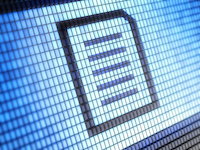The effect of students’ perceptions of Internet information quality on their use of Internet information in inquiry-based learning
 In Web 2.0 environments, the quality of published information can vary significantly and much of the information on the Internet is unproven. This unverified information hinders rather than facilitates student learning, especially among undergraduate students who depend heavily on Internet resources for their studies. Currently, we do not have clear understanding of how students assess information quality and how this process affects their learning. This study argues that students’ perceptions of Internet information quality influence their use of Internet information in their learning. The objectives of this research were to improve our understanding of how students evaluate Internet information by examining their perceptions of information quality and their use of information in learning, and to develop an information acceptance model that effectively measures and predicts students’ use of Internet information. The study participants were undergraduate students at a Hong Kong university (n=299). We used confirmatory factor analysis and structured equation models to develop an information acceptance model based on Klein’s (2002) 15 information quality dimensions. Our results suggested that 8 out of the 15 information quality dimensions were significant in predicting students’ use of Internet information in their academic work.
In Web 2.0 environments, the quality of published information can vary significantly and much of the information on the Internet is unproven. This unverified information hinders rather than facilitates student learning, especially among undergraduate students who depend heavily on Internet resources for their studies. Currently, we do not have clear understanding of how students assess information quality and how this process affects their learning. This study argues that students’ perceptions of Internet information quality influence their use of Internet information in their learning. The objectives of this research were to improve our understanding of how students evaluate Internet information by examining their perceptions of information quality and their use of information in learning, and to develop an information acceptance model that effectively measures and predicts students’ use of Internet information. The study participants were undergraduate students at a Hong Kong university (n=299). We used confirmatory factor analysis and structured equation models to develop an information acceptance model based on Klein’s (2002) 15 information quality dimensions. Our results suggested that 8 out of the 15 information quality dimensions were significant in predicting students’ use of Internet information in their academic work.







